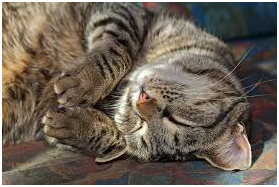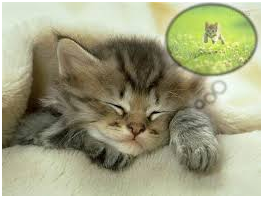When you book your cat into a Cattery Cheltenham location like https://www.catterycheltenham.co.uk you may find that you are worried about how they will adjust to their new, temporary location and whether they will relax enough to be able to sleep and eat, as these are usually the two things that go awry first when you cat feels stressed and we all know how important a cats food and sleep are to them. Particularly if like my cats they seem to jump up and make themselves comfortable at the end of your bed the moment you step out of it in the morning and appear to stay there until the evening when you get back into bed again, only momentarily getting up when you rattle the food packet or shout ‘dinner time’ up to them. I sometimes think they are even worse than teenagers. Cattery staff will make sure that your cat is happy and relax during your absence and talking through any of your worries beforehand will let you go away on holiday comfortable in the knowledge that they will be well looked after.

Your average cat will sleep for around 15-16 hours a day and as your cat ages you will find that this moves to more like 20 hours a day. As you may already be aware the reason why cats sleep so much is so that they can conserve their energy and then utilise this in short burst when they are hunting or stalking their prey or in the case of domesticated cats playing with a ball of wool or catnip mouse that you have bought them.
Human beings aren’t the only species that snore occasionally whilst they are asleep. You may have found that sometimes when you cat is curled up nice and comfortable on your lap and sound asleep that they will let out a little snore. It tends to happen when your cat is lying in position where their airways may become obstructed such as lying with their head tipped right back or when they are incredibly relaxed and in the deeper phases of sleep.

Cats experience both REM and non-REM sleep cycles, similarly to us humans. REM sleep is Rapid Eye Movement sleep and is usually the form of sleep we first enter and the last type of sleep we experience before we wake up. This sort of sleep usually lasts for around 10 minutes and probably makes up around 25 percent of your entire sleep cycle. Non-REM sleep is the deeper stage of sleep where your heart rate and breathing rate slows down to its basal rate. It is also during deep sleep that our brain waves and blood pressure also start to lower.
